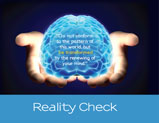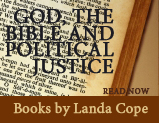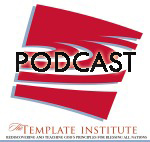Old Testament Template: Addendum
ADDENDUM
For an entire year I studied the Bible and its Table of Contents from the standpoint of God’s purposes in it. Making the assumption God did inspire each of the books of the Bible, and that the Church Fathers were inspired with the ordering of these same books, and assuming that it is no small miracle that the church has basically agreed on these things for the last 2000 years, then what was God’s strategy and emphasis in the books chosen and the order in which they are placed? This was a mind-blowing study!
OVERVIEW
First, we have the five books of Moses, the template of Hebrew thought.
Genesis: The origins of the cosmos, individual, family, tribe, and nation, and, of course, sin.
Exodus: Israel’s current events from God’s perspective and what God is doing with Israel as a community in space and time.
Leviticus: The formation and workings of the priesthood and the tabernacle.
Numbers: The logistics of discipling these people into a nation.
Deuteronomy: The overview of how God wanted Israel to live in every area of life.
These five books, the Pentateuch, laid the foundation for all of the Old Testament and, as we will see, for the New Testament as well.
ALL REFER BACK TO MOSES
Every other book in the Old Testament refers back to these first five books. They evaluate the history and forecast the future of Israel based on what God has lain down in the Law. The rest of the Old Testament relays events and history based on the answer to one simple question: “Are we living up to God’s principles in the first five books?” Let’s look at what God emphasizes in the Table of Contents of the Bible.
Joshua: Community-Government
How they do in the Promised Land in the first generation of political action.
Judges: Community-Government
How the next 13 generations of Judges do in the political arena.
Ruth: Individual-Family
After seven books emphasizing communities and nations, God narrows in on two powerless and poor women who are blessed when they obey in faithfulness.
1 and 2 Samuel, 1 and 2 Kings, and 1 and 2 Chronicles: Community-Government
The history of the political leaders and how they did or didn’t obey God’s law.
That makes eight books for Government, one for Family, one for the Priesthood, twelve books for Community, and one for the Individual. Seeing any pattern yet?
Ezra, Nehemiah, and Esther are a trilogy. They are not in order. Esther is actually first chronologically, Ezra second, and Nehemiah third. They are all exiles in the Capitol city of Sousa. In about 479 B.C. Esther marries King Xerxes and as a result is used of God to save the lives of all the Jewish people in exile. In about 456 B.C., 21 years after Esther’s book, Ezra, who is a priest, returns to Jerusalem and rebuilds the temple, but the city is still in chaos and disrepair. He is there 13 years but without success in restoring the community when a letter reaches Nehemiah, part of the King’s palace security guard, telling of the disasters in Jerusalem. Nehemiah is sent by the King with supplies and support to rebuild the wall and restore order and infrastructure to the community. So we have:
Ezra: Community-Priesthood
Nehemiah: Community-Government
Esther: Community-Family and Government
Esther saves the people. Ezra restores the temple and the Law, and Nehemiah rebuilds the government and community economic system – all areas emphasized by God as essential parts of Kingdom life.
Our count is now Government ten, Family two, Ecclesiastical order two, fifteen books that emphasize Community and one that emphasizes the Individual.
What Is Job Doing Here?
Job: Individual-Family
Job is the oldest book of the Bible to the best of our understanding. He was, perhaps, a contemporary of Abraham. I think most of us see the wisdom of the Church Fathers in not selecting Job as the first book of the Bible. Its theme of suffering and personal warfare is tough stuff for the most mature believer. However, Job is the second book in the scriptures to look at the story of an individual without it being particularly important to the history of the community. Like Ruth, Job is important because of his walk of faith and obedience to God under great duress. Job begins with great power, but is reduced to nothing by a series of attacks and disasters. After seventeen books of God focusing on the principles by which He has made the universe to work, the blessing of knowing and applying these truths to our lives, and the curse of not obeying them, a quite different focus is introduced in Job. For the first time since Genesis, God tells us that there are additional challenges to obedience. We have an enemy and, even having made all the right choices, there may be another explanation for difficult circumstances in our life. We may be experiencing Satan’s attack! Today, we seem to have reversed this emphasis to everything being a spiritual attack and almost nothing the result of our choices.
The Wisdom Literature
We love the quartet of wisdom literature, perhaps, because each book focuses on the individual. While written by kings these books primarily deal with different dimensions of the believer’s personal life. What is important in our daily lives? Worship? Wisdom? Work? Family? All of them!
Psalms: Individual and Worship
Proverbs: Individual and Wisdom
Ecclesiastes: Individual and Work
Song of Songs: Individual and the Wedding (Family)
That brings us to ten books focused on Government, three on Family, six on the Individual, and two on the Priesthood or Ecclesiastical order.
The Prophets
Then we come to the 17 prophets. Some authors of these books were priests; some were shepherds, some government officials. However, they all speak to nations or communities as a whole. They all emphasize the “cause and effect” nature of our choices and the resulting blessing or curse. Each prophet focuses on four major areas of sin no matter what nations they are addressing:
Idolatry: Ecclesiastical order
Political Justice: Government
Immorality: Family and individual
Economic Injustice: Business and finance
God’s emphasis on the importance of the Ecclesiastical institution, or church, Government, the Individual, and the Family is overwhelming. The focus on the community is almost unanimous and the emphasis on knowing God’s thinking and aligning ourselves with it in how we live is complete.
The New Testament
What do we see in the New Testament? Each Gospel writer emphasizes a different source of authenticity:
Matthew defends Jesus as the messiah by drawing heavily from the Old Testament sources: theecclesiastical history.
Mark emphasizes Jesus’ relationship with the material word and His power over it: science.
Luke takes the view of an investigator looking at the testimony of those who were with Jesus: legal.
John uses the personal, eyewitness account of the individual.
The Gospels, like the books of Moses, lay a holistic foundation for the Lordship of Christ. Moses lays a holistic basis for God’s rule over all of Creation and life; the Apostles lay the same foundation for the Lordship of Christ.
Now we come to the book of Acts, which I think could be called “The Explosion!” If Acts were the only book to guide us in our work, for the Kingdom, we could be quite comfortable with our ministry in the last century. The word about Christ bursts out from the new church and explodes with conversions, gifts of the Holy Spirit, healing, miracles, persecution, public proclamation in Jerusalem and beyond, and the establishing of the church internationally. The “explosion” begins with the new converts accused of being drunk and ends with some of them in jail. What a roller coaster.
In the books that follow, we begin to see, and deal with, some of the issues within this new international church movement. As the gospel travels out of Jewish territory and begins to encounter the surrounding worldviews, and a shifting emphasis amongst the Jews as well, Romans ask the question, “What are we going to do with the Old Testament?” 1 Corinthians takes up the question of how the Holy Spirit works. In 2 Corinthians they ask where the authority of this new church comes from.
The next 19 letters reveal a pattern of themes not dissimilar to the Old Testament. In various circumstances, nations, churches, and in individual lives we begin to deal with the drift hazards of the new church. What are some of the major themes of these letters and issues?
- What do we do with the Old Testament and the laws of Moses?
- What is the function of this Holy Spirit?
- Where does authority come from in this new Church?
- How do you/we know you/we have authority?
- What are the conditions for elders and deacons and the character of a church leader?
- How do we discern false teaching from true?
- Questions of how we live and our position on family, immorality, government, finances, honesty, work and generosity.
- The nature of eternity and life after death.
- Perspectives on persecution and endurance.
- The supremacy and return of Christ.
- The end of time.
You can almost feel the struggle of the New Testament leaders trying to integrate the Old and the New, between the church slipping towards the Law or towards the Spirit. Throughout all these discussions, Christ is presented as the only way to salvation, the Law and the prophets as the teachers of how we should live, and the Spirit as the one who leads us into applying the principles of the Law into daily life. Nowhere do we see one discarded in preference of the other. All of the books are full of the tension from integrating the Old Testament with the New Testament.
What Does Jesus Say About All Of This:
Matthew is the first gospel, I believe, for a reason. Matthew makes an all out effort to link the life and teaching of Jesus with the Old Testament. At least 49 times in 28 chapters Matthew links the teaching and life of Jesus with Moses and the prophets. In Matthew 5, Jesus makes His position clear on the place of the Law.
Matthew 5:17-19
17 Do not think that I have come to abolish the Law or the Prophets; I have not come to abolish them but to fulfill them.
18 I tell you the truth, until heaven and earth disappear, not the smallest letter, not the least stroke of a pen, will by any means disappear from the Law until everything is accomplished.
19 Anyone who breaks one of the least of these commandments and teaches others to do the same will be called least in the kingdom of heaven, but whoever practices and teaches these commands will be called great in the kingdom of heaven.
This is such an amazing passage. Jesus makes it clear that the new messages of forgiveness and salvation on their own are not adequate for discipleship, but rather build on the foundation of the Law and the prophets. In Matthew 13:52, Jesus says, “Every teacher of religious law who has become a disciple in the Kingdom of Heaven is like a person who brings out of the storehouse the new teaching as well as the old.” In Matthew 5:19 Jesus exhorts that the teaching of the new without the foundations of the old will produce weakness and the “least” in the Kingdom, but combining the two will produce greatness in the Kingdom of God. Mark 7:8-13 accuses the Pharisees of substituting God’s laws with their own traditions. And in Luke 16:16-17 Jesus challenges the crowds that by preaching the Good News of the Kingdom He does not mean that the law has lost its force; the law is stronger and more lasting than the universe itself.
After Jesus clarifies the place of the Law and the prophets in Matthew 5, He goes on to give six examples of how He builds His teaching on the teaching of Moses:
Do not murder: Jesus affirms the commandment that “Thou shalt not kill,” but He goes further to build on that law. He says that now that the Spirit is coming we should not even act in anger. In fact, we should go a step farther and be reconciled before we come to worship. In other words, even though we are saved and forgiven we are not to murder and, if we are saved, our standard will be even higher.
Do not commit adultery: Jesus agrees that Moses taught that theywere not to commit adultery, but He is challenging them to an even higher standard of a pure heart.
Divorce: Moses taught them that divorce must be legally carried out, but Jesus is telling them that it must be under the direst circumstances or it is equal to adultery itself.
Be Truthful: Moses taught them to not break an oath; Jesus goes a step farther to say that they are not to break a promise or a verbal commitment.
Righteous vengeance: Moses taught that they should only seek righteousvengeance, but Jesus says to give up the right to personal vengeance altogether.
Love your neighbor: Moses encouraged them to love their neighbor; Jesus says do that and go much farther – love your enemy.
What Happens If We Do Not Lay The Foundation?
What happens when we remove the foundational principles of the Old Testament in our disci- pleship of new Christians? Is it possible that we produce a Rwanda where a church with sixty-plus years of constant revival can participate in tribal genocide? Is it possible that we produce an American church where recent Gallup polls say there is no measurable difference between the lifestyle of the Christian population and that of the non-Christian? Is it possible that this is the reason divorce in the Bible Belt of the U.S.A. now exceeds the divorce rate in the rest of America? Can this be why the average Christian businessman in Korea is no more committed to his word in a contract than the average non-Christian businessman? Could this be why in 80 percent converted Nagaland, 70 percent of the teens in the capital are reported to be drug addicts. Is it possible that this is why modern Christianity makes no measurable difference in the landscape of the societies that surround us? Are we preaching a gospel that, because it is not grounded in the Old Testament teachings, is producing the “least in the Kingdom of heaven?”
When we preach what Paul calls the “milk of the gospel” – salvation, repentance, heaven and hell, and the forgiveness of sin – without the “meat” of how Christ expects us to live, we are in danger of producing a new mysticism, a religious belief detached from any physical reality in a life. We develop a faith that requires no change in thinking or lifestyle that is unattached to the cause and effect relationship of our choices and the laws of God. We are called to “take every thought captive” and to be “conformed to the mind of Christ.” We are to be “transform- ed by the renewing of our minds.” How can we do this if we have not laid the same founda- tions Jesus laid? Jesus was discipled by the Old Testament. Paul was discipled from the Old Testament. We do not understand their thinking if we are not interpreting the New in light of the Old.1
In the face of a world lost in sin, Jesus had time to simply live out the witness of the principles of God in daily life in the context of His family, work, and community. Less than 10 percent of His entire life was spent in direct ministry and open proclamation of the gospel. He spent ten times more of His life living it out. His authority in ministry was, in part, the authority of His life in applying Moses and the prophets to His times.
We Do Have Time
Is it possible that we have bought into an eschatological anxiousness that keeps us from doing the whole work of discipleship? The great reformer Luther was asked what he would do today if he knew Jesus was coming back tomorrow? His reply was that he would plant the fruit tree he had planned yesterday to plant tomorrow, because Jesus said to “occupy” until He comes.2 The Amplified translation says to “occupy (do business with) until I come.” A word search in the Greek: tarry (pragmateuomai: To busy oneself with, to do business, to trade.) Kittle’s Dictionary: make a profit, to deal with radically, to investigate closely, to render political service, those charged with affairs of State, of intellectual pursuits, of business affairs.
The early reformers of the first millennium and a half of church history didn’t just think different things than today’s believers, they thought differently about all of life. True repentance is changed thinking and Christ cannot transform us if we do not seek to hold and live out His view about all of life!
Be The Good Neighbor
In many cultures, the most important indicator of what kind of person you are and of your value is how you relate to your neighbor. This was also part of the Hebrew or biblical view of the world and the view emphasized throughout scripture and in the teaching of Jesus. He stresses this community perspective by putting our love of God alongside our being a good neighbor. He said that second in priority only to our devotion to God, is how we treat those who live around us. In Matthew 7:12, Jesus summarizes the entire Law and the prophets to mean treating others the way you would like to be treated. In Matthew 22:34-40, He said “You must love the Lord your God with all your heart, all your soul, and all your mind. This is the first and the greatest commandment. And the second is equally important: Love your neighbor as yourself.” Loving my neighbor is as important as loving God. If I love God, I will love my neighbor!
Who Is My Neighbor
In Luke 10:26-27, a religious expert in the law tried to get a limited definition of neighbor. He asked Jesus, “and who is my neighbor?” In response to this Jesus tells the story of the Good Samaritan as an illustration. He changes the definition of neighbor from “those who live close to me” to the one who crosses your path and who is in need. In other words, anyone, everyone.
What happens when the Church switches the biblical emphasis from our responsibility to our neighbor to personal holiness? I believe we create the new monasticism, a spiritual pursuit of God that is completely alienated from social responsibility and action. We create the concept that my personal holiness is completely independent from how I interact with the community God has placed me in. I feel I can love God and have almost nothing to do with the people living around me; I can have national truth without national responsibility; I can actually seek to live with only those who believe as I do so that my life will not be sullied with the messy lives of non-Christians. Our walk with God begins to be evaluated strictly on personal merits alienated from our participation in the life of our community.
Years ago I was sponsored by a concerned Christian to attend a political fundraiser in California. My benefactor thought I might be able to get to know and influence some of the county officials. At the time, this area was one of the most Christianized communities in America. I spent quite a bit of time with a local county judge, a single woman about my age. She was very honest and forthright so I asked her why she did what she did, knowing that she had a tough job and couldn’t be motivated by the money or the hours. She said that, at the end of the day, she did it to help the children at risk. She had great authority as a judge to intervene in their lives at points where it could make a big difference.
I asked her what part of the local community she found most open to help bring these children into homes. She knew that I was a Christian and she seemed reluctant to answer until I encouraged her I was not thin-skinned; I wanted an honest observation. She said, “Well, it is not the Christians who want these children.” She had found the greatest openness in this evangelized county to be amongst the Jehovah Witnesses and the Mormons. The great revivals of this county in the 70’s produced the first mega churches, the first contemporary Christian music, the first of a new breed of Christian bookstore, but it has still not touched the community.
President Mbeki, of South Africa, has been quoted as saying that he would be behind any effort to help change the Christian community’s lack of social concern. While the ruling political party has a majority of Christians, it is the Muslim minority who has the vision to transform South Africa and is doing so.
Let’s bring back the whole Kingdom with the whole Bible and the supremacy of Christ in all things!
1. 1 Corinthians 3:2; 2 Corinthians 10:5; Hebrew 5:12-14; Romans 12:2
2. Luke 19:11-13







